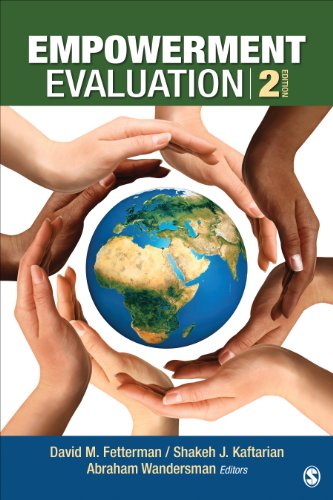
This Second Edition celebrates 21 years of the practice of empowerment evaluation, a term first coined by David Fetterman during his presidential address for the American Evaluation Association. Since that time, this approach has altered the landscape of evaluation and has spread to a wide range of settings in more than 16 countries. In this Second Edition of Empowerment Evaluation: Knowledge and Tools for Self-Assessment, Evaluation Capacity Building, and Accountability, an outstanding group of evaluators from academia, government, nonprofits, and foundations assess how empowerment evaluation has been used in practice since the publication of the landmark 1996 edition. The book includes 10 empowerment evaluation principles, a number of models and tools to help put empowerment evaluation into practice, reflections on the history and future of the approach, and illustrative case studies from a number of different projects in a variety of diverse settings. The Second Edition offers readers the most current insights into the practice of this stakeholder-involvement approach to evaluation.
“One of the greatest evaluation innovations of the past two decades has been the development of a professional and systematic approach to self-evaluation called empowerment evaluation. This book offers you the latest, cutting-edge understanding of this powerful innovation and evaluation approach. May you be inspired and empowered as you adventure through the chapters in this outstanding volume!” —Stewart I. Donaldson, President-elect, American Evaluation Association, Claremont Graduate University
“This twenty year follow-up to the original provides even better and richer stories about the versatility and utility of empowerment work in most social contexts. It expands our understanding of how empowerment evaluation is foundational to any effort to improve and measure growth in any community/social environment.” —Robert Schumer, University of Minnesota
“This text brings empowerment evaluation to life, and in doing so it offers all evaluators a large body of relevant concepts and tools for designing, implementing, and assessing evaluation efforts that engage, democratize, and strengthen stakeholder’s self-determination.” —Gary J. Skolits, The University of Tennessee, Knoxville
